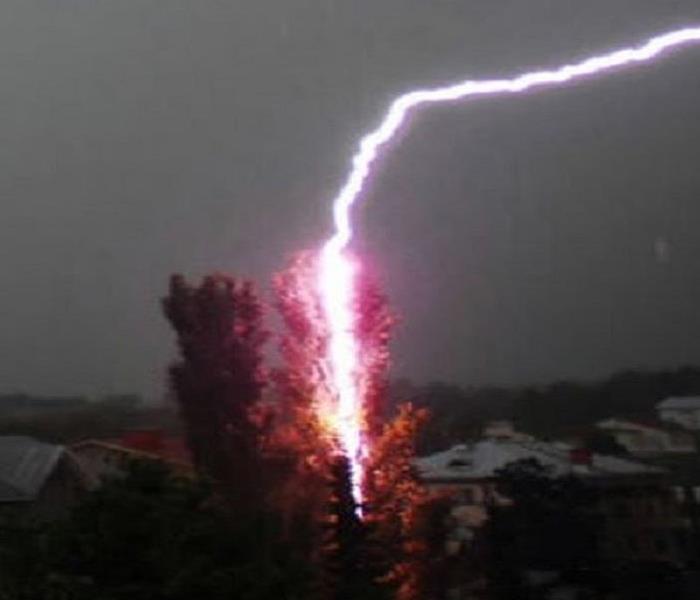Lightning Data
6/23/2020 (Permalink)
When you think of lightning, you think of summer storms, but lightning can happen even in a snowstorm. On average, there are approximately 1800 thunderstorms at any time throughout the world. Further, there are about 44 lightning bolts every second worldwide.
In a previous blog, “Lightning facts and myths”, we discussed some of the fallacies people fall into when thinking about lightning. In this blog, we will go over more facts and statistics.
An actual lightning bolt is about the size of a nickel, wrapped in intense light as it speeds through the sky. A bolt may reach 53,540 degrees, which is five times hotter than the sun’s surface of 10,340 degrees. Also, a bolt can reach speeds approaching 220,000,000 mph, which is one third of the speed of light. The ensuing thunder travels at about 750 mph.
On average, 60 US citizens die each year due to lightning. Most of those are associated with sporting events (golf, fishing, stadium events).
Lightning causes, on average, about 22,600 house fires each year in the US. That may not sound like a lot, but that is 2.58 fires each hour.
Some lightning don’ts:
- Don’t stay outside. Inside a structure will provide you the best protection from getting hit by a bolt. The saying goes: “When thunder roars, go indoors!”
- Don’t use water during a storm. Whether showering, washing dishes, or bathing, if lightning should strike your house, it could travel through the water pipes and cause injury.
- Don’t use electronics that are plugged in. Again, if your house is hit, it could travel through the wiring and shock you. Phones and video games are the best suspects here, particularly if they have wires.
- Don’t huddle under trees. Trees may offer some protection from the rain, but little to no protection from a lightning strike.
- Don’t press your luck when it comes to sports. Thinking you have time to finish one more hole in golf, or this half inning in baseball, can be disastrous. See the first point above.

 24/7 Emergency Service
24/7 Emergency Service
